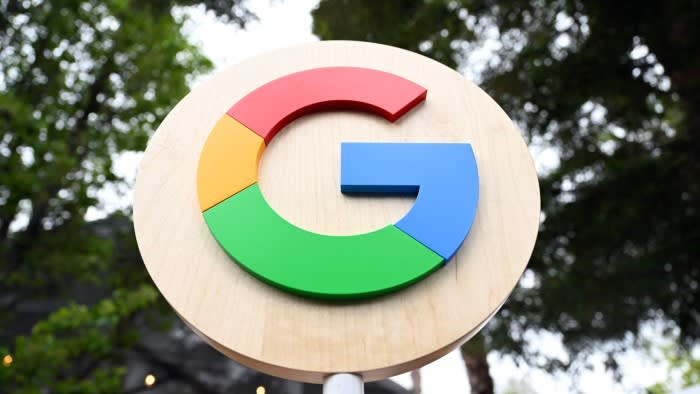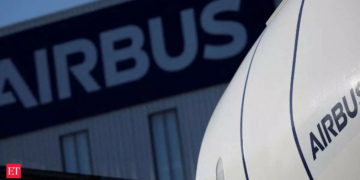Welcome to Due Diligence, your briefing on dealmaking, private equity and corporate finance. This article is an on-site version of the newsletter. Sign up here to get the newsletter sent to your inbox every Tuesday to Friday. Get in touch with us anytime: Due.Diligence@ft.com
Musk electrifies private equity with Twitter buyout bid
At first glance it would appear that Elon Musk is taking M&A announcements more seriously.
After his infamous 2018 “funding secured” tweet, announcing his intentions to take electric carmaker Tesla private, landed him in hot water with US regulators, the billionaire tech entrepreneur took a more cautious approach on Thursday.
“I made an offer,” Musk tweeted, linking directly to an SEC filing outlining his hostile bid to buy Twitter for $54.20 a share, valuing the social media platform at $43.4bn.
Which brings DD to the question on everyone’s minds: does Musk have the cash to finance the deal?

Elon Musk: ‘Twitter has extraordinary potential. I will unlock it’ © AFP via Getty Images
A lot of the things Musk broadcasts to his 81.8mn Twitter followers should probably not be taken at face value.
But the big difference this time around is that Musk can afford to buy Twitter, or almost any other company for that matter. Merchants of debt happily lend to people who don’t need the money.
Musk’s estimated $265bn in personal wealth is largely tied up in Tesla stock as well as ownership of the privately held SpaceXLex pointed out. He has already borrowed heavily against his shares in Tesla, according to the electric carmaker’s own disclosures, with 88.3mn shares worth more than $80bn pledged to banks.
The tech entrepreneur-turned aspiring media baron has enlisted Morgan Stanley as an adviser on his quest to buy the 91 per cent of Twitter he doesn’t own. (DD reckons JPMorgan Chase prefers to sit this one out, anyway.)
Private debt markets could potentially cobble together more than $10bn in debt to support a bid, with billions more available for a preferred equity investment, so long as Musk partners with a top private equity firm.
“If he is going to partner with a well established private equity firm that has done this for a living, I think lenders would be more comfortable,” said one prominent lender.
Fellow Twitter investors Elliott Management and Silver Lake have stayed silent on how they will react to Musk’s effort.
“The noise of Elon Musk would be something we’d have to think about. There is a lot of volatility that comes with him,” said the financier, who added, “If there is a Silver Lake there you would feel a whole lot better.”
A private equity sponsor is also important because Twitter is not very profitable, so lenders need to underwrite against adjusted profits. “He is going to have to write a pretty big equity check,” said the lender of Musk.
It’s not clear, though, why private equity would want to back a Musk buyout. He’s unlikely to share the industry’s intense focus on maximising returns, or to let a financial sponsor be in the driving seat.
The knock on Twitter is that it has dramatically underperformed its potential — an enticing turnround play for private equity buyers such as Thoma Bravowhich is kicking the tyres on the tech group, according to the New York Post.
Hours after announcing his bid for Twitter, Musk took to the stage at the Ted 2022 conference in Vancouver on Thursday afternoon and declared he had “sufficient assets” to fund the deal, but conceded: “I’m not sure that I will actually be able to acquire it”.

Nevertheless, Musk is still allowing himself room for a swift exit strategy.
“If the deal doesn’t work, given that I don’t have confidence in management nor do I believe I can drive the necessary change in the public market, I would need to reconsider my position as a shareholder,” Musk wrote in a letter to Twitter’s board, a damning verdict on Twitter chief Parag Agrawal’s leadership.
Musk affirmed to his TED interviewer Chris Anderson that he has a back-up plan if Twitter were to reject his advances. “I don’t like to lose,” he said, without providing further explanation.
Blackstone, Saudi Arabia, and Europe’s biggest take-private
On the eve of Donald Trump’s first foreign trip since his inauguration — a 2017 visit to Saudi Arabia — the then-president’s ally Stephen Schwarzman’s private equity giant Blackstone announced a big deal.
Saudi’s Public Investment Fund was to place $20bn with the alternative asset manager, becoming the anchor investor in a new infrastructure fund that would focus on upgrading US assets. It was unveiled as a signature accomplishment of the visit.
But Trump’s grand plans to “build new roads, and highways, and bridges, and airports, and tunnels, and railways all across our wonderful nation” didn’t quite materialise.
In 2018, Blackstone’s then-president and chief operating officer Tony James conceded it could take “[a] decade or so” to raise the fund’s $40bn target.

Stephen Schwarzman, chief executive of Blackstone, left, and Donald Trump during a meeting in 2017 © Getty Images
By early 2020, the fund’s grand aspirations hadn’t gotten very far. So, as DD’s Kaye Wiggins revealed, Blackstone started looking to Europe to deploy the cash, poaching Jonathan Kelly from rival investment firm Brookfield Asset Management to lead the hunt for deals out of London.
On Thursday, some of that cash was lined up to be put to use in what would be the largest-ever private equity backed acquisition of a listed European company.
Schwarzman’s private equity firm has teamed up with Italy’s billionaire Benetton family to launch a takeover bid for Italian infrastructure group Atlantia that values the toll road operator at about €54bn: about €19bn in equity and €35.3bn in net debt.
DD broke down the saga last week: after navigating a political game of chess involving the Benetton retail dynasty, the Real Madrid football tycoon Florentino Perez and the billionaire hedge fund manager Chris Hohn to buy a stake in Italy’s main toll road operator, Motorways for Italy (Aspi), Blackstone was well-placed to bid for its owner, Atlantia.
In teaming up with the Benettons, who own a third of the company and have been under pressure to seek a buyer for all or part of it since the tragic collapse of the Atlantia-backed Morandi bridge, Blackstone has all but edged any potential rival bid from Pérez, Brookfield and Global Infrastructure Partners out of the race.
The chances of a rival, hostile offer are “extremely limited” given the size of the Benettons’ stake, analysts at Cowen noted.
Why it’s so hard to get stuff done in German boardrooms
Germany’s chief executives know how to keep FT journalists on their toes.
There were the friendly WhatsApp exchanges between Deutsche Bank’s boss and a former client who’s been ditched after potentially suspicious payments. There was the mindset inside Axel Springer that saw sexual misconduct claims as a conspiracy. And, of course, that whole thing at Wirecard.
And who could forget the swashbuckling CEOs of corporate Germany’s past, from Volkswagen’s Martin Winterkorn to Germans Anshu Jain to Daimler’s Juergen Schrempp.
Towering figures in German business such as Martin Winterkorn, former Volkswagen chief executive, defined the whole culture of the country’s corporate empire, and not necessarily in a good way © REUTERS
But the colourful characters that have dotted Germany’s Dax 40 over the years, as the FT’s Olaf Storbeck writes, are striking outliers in a postwar governance system that rarely allows for anything to get done.
As a seasoned investment banker put it to Olaf at his posh private members’ club in Mayfair: “There are no chief executives in Germany.”
Under the country’s two-tier board system, German CEOs wield significantly less power than their international counterparts.
Executive boards act as collective bodies, and half the seats are held by union representatives. The system has largely made German companies fair and equitable places to work. But it also fuels a ton of gridlock.
If an executive disagrees with their boss, for example, there’s little a CEO can do about it other than lobbying the chair or threatening to resign.
These protections are in place for obvious reasons. But they can also stifle innovation as tech disrupters encroach on the territory of Germany’s biggest corporations.
Job moves
-
The board of Brazilian oil major Petrobras has elected José Mauro Coelhoa public sector official specialising in the energy sector, as chief executive for a one-year term following a period of turmoil that resulted in the removal of two previous bosses.
-
Procter & Gamble chief executive Jon Moeller has been appointed as the consumer goods group’s chair following the retirement of executive chair David Taylor.
-
Aaron Chandrasakaran, Citigroup’s head of Hong Kong investment banking, is leaving to join Jefferies Financial Groupper Bloomberg.
Smart reads
Leasing the lord A severe housing shortage in Miami — coupled with a dwindling population of local churchgoers — has ushered some religious leaders into the property market. Some congregants have accused them of selling out, the Guardian reports.
What happens in Vegas When Matt Maddox stepped down as CEO of Wynn Resorts last year, he was praised by the board for stabilising the casino group following a sexual misconduct scandal. An investigation by the FT’s sister publication Agenda reveals that Maddox posed reputational risks of his own.
Playing both sides Brooklyn Nets owner Joe Tsai is an expert at navigating the NBA’s delicate relationship with China, donating hundreds of millions to social justice in the US while generating billions from an authoritarian government, ESPN writes.
News round-up
German spies shunned offer to meet Wirecard fugitive Jan Marsalek in Moscow (FT)
Morgan Stanley beats expectations as M&A and trading cushion impact of war in Ukraine (FT + Lex)
Brookfield pips Macquarie in $2.7bn move to buy Australian telecoms group Uniti (FT)
Goldman’s first-quarter profits drop as dealmaking fades (FT)
Interns are making over $16,000 a month as Wall Street talent wars heat up (Bloomberg)
London-listed Petropavlovsk warns investors may be wiped out (FT)
Indonesia’s GoTo faces critical challenges after landmark IPO (Nikkei Asia)
Billionaire accused of tax evasion claims ‘accelerated’ dementia (BBG)
Venture capital: high early-stage funding points to healthy private market for tech (Lex)
Recommended newsletters for you
Scoreboard — Key news and analysis behind the business decisions in sport. Sign up here
The Lex Newsletter — Catch up with a letter from Lex’s centres around the world each Wednesday, and a review of the week’s best commentary every Friday. Sign up here















